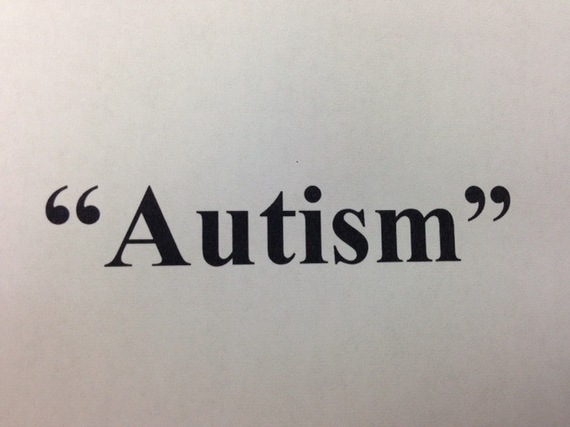Somewhere out there -- right now -- is a parent who just heard something she didn't like. Someone who loves or works with her child suggested her precious, perfect baby may have a form of autism spectrum disorder.
There are signs. Her child is most likely developmentally delayed in significant ways. He may have walked late, often skipping crawling altogether. He may lack the fine motor skills other same-age peers have already mastered. Physically, he may lack the strength, balance, and coordination to do the typical things young children do, such as ride a tricycle, jump, run, or hold on tight when taken for a ride on daddy's back. Perhaps most significant is a delay in speech. He may have developed a few words and lost them, or he may have never made any kind of vocalizations. In addition to not speaking, he may not understand the speech of others. And, if his name is called, he may not consistently respond -- if he responds at all.
In addition to developmental delays, he probably has exhibited some quirky behaviors. He may not play with toys appropriately, preferring spinning, lining up items, or flicking strings or non-toy objects. He may not be able to tolerate certain textures, touches, sounds, or lighting. He may throw sudden tantrums that go far beyond any prior conceptions of the word. He may appear to be present physically -- but live in a world of his own. Or he may not have many developmental needs at all, yet be unable to connect to others, read social situations, or tolerate change of any kind.
And though his mother probably already noticed these delays and odd behaviors, she is angered when the subject of autism inevitably comes up. She thinks she has good reason.
She remembers a time in which "the short bus kids" were never seen in school. A time in which special needs children were not invited to access the world of their same-age peers. When "special needs" was a stigma -- and autism a kind of death sentence in the minds of those who didn't understand it. She's afraid. She doesn't want this kind of label on her child, doesn't want the world to discount him before he learns, grows, and reaches his potential. So she refuses to say the word "autism" -- and refuses to allow anyone else to say it or dare to suggest her child needs special education services, therapies, or counseling.
It's understandable. But it's wrong. The worst thing that could happen to a typical, but slightly delayed child is not an incorrect autism diagnosis. For if that diagnosis is wrong, it'll eventually be evident. No, the worst thing is for a child who is autistic to not be identified.
That's because we know so much more about autism today than we did before. We know, for example, that the younger a child receives intervention services in communication, behavior, physical and occupational therapies, sensory integration, feeding, and more, the better the outcome over his lifespan. The earlier an autistic child -- and we're talking very early -- learns to adapt to the demands of his world, the greater the possibility of future independent functioning. The ability to communicate his needs, fears, wants, and hurts. The ability to nurture his interests and passions. The possibility of a career, relationships, and a family of his own. The statistics on autistic children who do not receive early intervention services are dismal indeed. But the capacity of children to overcome the more disabling aspects of autism -- while enhancing some of the strengths of it -- is heightened at this tender age. To throw away these vital years over fears of "being labeled" is a mistake. A mistake that will one day likely haunt both the child and his family. Labels are not the enemy; time is.
For labels serve more than one purpose. In education and medicine, labels equal services. Labels are the keys to the locked doors of help -- of hope. Yes, they can be limiting. Yes, they can be misleading. But without them there may be no access for anyone but the independently wealthy.
Labels also serve an equally important purpose -- for the child to learn who he is, why he thinks and experiences the world the way he does, and how to find others like him. To find others who know where he is coming from and how to navigate a world of those who don't. To value his own unique mind and perspective. And to recognize those who haven't yet met their own tribe and reel them in to the fold. For every soul needs to find his tribe in life. We all deserve to know who we are. Everyone. For autism is not an add-on. It is woven into the fabric that makes the individual. It's wrong to deny a child that self-awareness, no matter how good the intentions.
Parents, if you are sitting on that fence, jump off on the side of awareness, intervention, support, and hope. Read and learn about the many autistic individuals out there who live full and rewarding lives. Lives that have joy. Lives that have value. Lives that contribute to our communities and our world.
Go on. Stop hiding. Stop procrastinating. The diagnosis won't bite, but regret just may.
Autism. Say the word.
